The basenji: an awesome mix of charm, intelligence, and athleticism. If you’re up for an independent and low-maintenance doggo with unique personality traits and a sharp wit, a basenji might steal your heart.
But as great as purebred basenjis are, there are also tons of basenji mixes that are just as interesting and loveable. We’ll introduce you to a few of our favorite basenji mixes (and share some cute pics) below!
Basenji Breed Basics: Everything You Need to Know
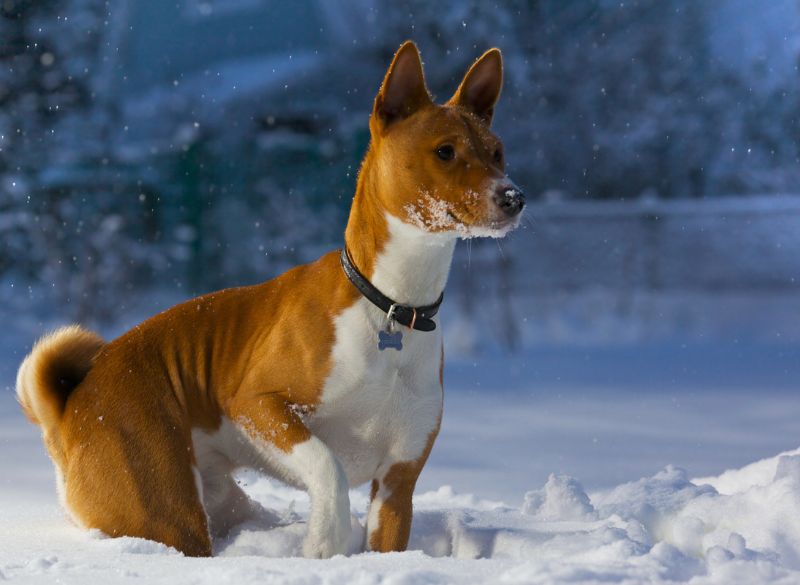
With basenji mixes, you won’t know exactly what kind of personality your dog will have. But you can get a good idea by learning about the typical traits of basenjis.
History of the Basenji

The origin of the basenji is rooted in the heart of Africa and predates recorded history.
Originating from the Congo region, these distinctive dogs have left their paw prints across time. Evidence of their existence can also be seen in ancient Egypt, where basenjis were immortalized in stone carvings on the tombs of pharaohs.
It wasn’t until the early-to-mid-20th century that the basenji embarked on a new chapter, making its journey from Africa to Europe and then the United States. This migration marked the beginning of the basenji’s global presence, captivating the hearts of dog lovers.
The Basenji’s Appearance

Basenjis have a sleek and strong appearance, with a small-to-medium-sized body and a short, smooth coat that can showcase a range of colors, including chestnut red, brindle, black, and tri-colored patterns.
Their tails are tightly curled, which suits their poised and alert demeanor. Their muscular and agile bodies allow them to move with impressive ease, making them captivating to watch.
The Basenji’s Personality

Basenjis are unique components of the dog world. Instead of barking, they’re all about yodels, whines, and the occasional dramatic scream.
Basenjis are incredibly curious and energetic friends who need plenty of action to keep their spirits high.
They have a reputation for being stubborn, and if you try to push them too hard, you might get a puzzled look or maybe even some attitude.
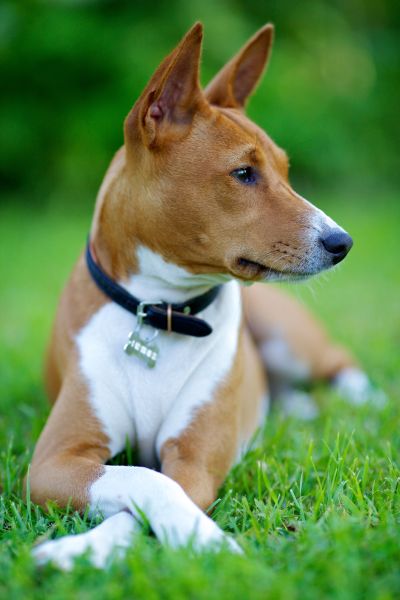
These guys are super bright, but they’re not into the whole obedience thing just for the sake of it. Instead, they’ll use their clever minds to get your attention and probably get you to give them what they want.
These natural hunters are always on the lookout for a good chase (and they’re master escape artists), so on walks, a leash is a must.
Socialization, puppy training, and fun activities like doggy sports or agility classes are right up their alley when it comes to mental stimulation.
While they can be a tad “argumentative,” they’re generally cool with the whole fam, including kids and strangers.
But boredom can be their kryptonite when they’re left alone, so make sure to leave your basenji with plenty of activities to entertain herself.
If you’re up for a clever, spunky companion, the basenji might just be your perfect match!
Health Concerns for Basenjis

Basenjis are healthy and resilient dogs, but they are susceptible to some health issues you’ll want to watch out for.
Their eyes, for example, can suffer from certain conditions, like optic nerve coloboma and cataracts. They can also have problems with colitis, which affects the digestive tract, or kidney disease.
It isn’t uncommon for a basenji to have an underactive thyroid, and some basenjis suffer from hernias or joint issues, such as hip and elbow dysplasia.
But if you stay on top of the usual health check routine, many of these conditions can be treated.
Grooming a Basenji

Basenjis are considered very clean dogs, thanks to their cat-like grooming habits. Their short, fine hair doesn’t shed much, and they only need a bath once every few months.
Since their coat can adapt to the environment they’re in, they might need a bit more maintenance in the winter, when their undercoat can become fluffier than normal.
Additionally, as with all dog breeds, basenjis require regular nail trims. And because these pups often protest nail-trimming sessions, you’ll want to start from a young age so that they become accustomed to the process.
15 Great Basenji Mixes!

Get ready to meet some of the canine world’s delightful canine combos: basenji mixes! Just remember that each basenji mix is an individual – we’ll share some of the most common traits these mixes display, but there are always outliers.
1. Akenji (Basenji x Akita)
Thanks to the vast differences between these parent breeds, these pups could have a wide variety of traits. Friendliness is not typically an Akita’s forte, so early socialization will be the best bet for encouraging good social habits, especially with children. What you can expect from an Akenji is a fierce and loyal protector, who loves their family, and probably won’t do much barking or drooling. They may have a hard time staying focused though, so you might need some treats to sweeten the deal during training sessions.
Going for a run on a chilly fall day is probably a picture-perfect weekend activity for these high-energy pups. But the tendency to get distracted can make them a flight risk, so it’s a good idea to keep them on a leash whenever they’re not in an enclosed area.
Check out some other adorable Akita mixes!
2. Whippenji (Basenji x Whippet)
If you’re looking for a quiet companion, the Whippenji might be just the ticket. Like most basenji mixes, this canine combo usually barks very little and has a low-maintenance coat.
Whippenjis typical love attention and get along well with children, making them excellent family companions.
Just be mindful of your climate before adding one of these doggos to your family. Basenjis and whippets are both breeds that can get chilled rather easily. So, if you live in a place with low winter temperatures, you may need to invest in a canine coat to keep your Whippenji nice and toasty.
3. Baseagle (Basenji x Beagle)
These pups are a great mix, and they’re likely easier for first-time pet owners to manage than purebred basenjis..
Grooming one of these doggos won’t take up too much of your time, making them a practical choice for those with a busy evening schedule. Their friendly and sociable nature means they’re fantastic companions, and they can generally be trusted around kids and strangers.
When it comes to training, their shared stubborn streak can present a challenge, but they more than make up for it with their post-training cuddles.
Take a look at some more beautiful beagle mixes!
4. Basenjicollie (Basenji x Border Collie)
These charming pups have their quirks. Prepare for some melodic barks and occasional howling sessions, just a little reminder of their basenji heritage. They’ll probably shed more than a typical basenji, so be sure you’re ready to clean up some excess floof.
Training might require a tad more patience, given their combination of high intelligence and independent tendencies. But don’t let that deter you; they’re still good-natured and friendly.
These active pooches are always up for an adventure, whether it’s a day at the beach or a playdate at the park. Just be mindful that their herding instincts might kick in, so don’t be surprised if they chase anything that moves!
5. Cocker Spanenji (Basenji x Cocker Spaniel)
These dogs blend two distinct personalities into one charming pup. The basenji parent’s stubbornness and fierce independence might make training these mixes a bit more difficult, but with some early encouragement and training, the cocker spaniel’s people-pleasing ways might shine through.
Luckily, they’re usually good-natured and typically non-aggressive, making them perfect for families. Plus, their apartment-friendly size means they’ll thrive in a cozy living space.
So, if you’re looking for an independent yet loving addition to your family, the Cocker Spanenji might just be your perfect match!
Want more cocker spaniel mixes? We’ve got 31 of them!
6. Shar Penji (Basenji x Shar Pei)
The Shar Penji is a one-of-a-kind pup that’s sure to capture your heart.
The friendly basenji side can help balance out the shar pei’s prickly demeanor. Early socialization is key here, as a Shar Penji might not be super comfortable otherwise.
These dogs can adapt well to different lifestyles but keep in mind that they may not be the best fit for households with other pets, as shar pei often exhibit problems with other dogs. These mixed pups are typically strong but activity levels can vary from dog to dog, so be prepared for a unique blend of traits that will keep you on your toes.
7. Chisenji (Basenji x Chihuahua)
The Chisenji is a sweet and friendly mix to add to an active family. They have a lot of energy to burn so they often appreciate long walks and activities to keep them busy. Despite their small stature, Chisenjis make excellent watchdogs, but they can get distracted easily during training sessions (tasty treats can help!).
Be careful around other dogs and unfamiliar people because they can bring out some of the Chihuahua’s territorial tendencies. You’ll want to keep them on a leash whenever you’re visiting an area with no enclosure, as the Chihuahua’s nature as a ratter can make them a flight risk if they see a small animal.
Check out some of our other favorite Chihuahua mixes!
8. Italian Greysenji (Basenji x Italian Greyhound)
Poised to be leggy, this blended barker is likely to have a sleek frame made for speed. Unfortunately, he isn’t well-insulated against the cold, so you’ll want to get him a good sweater or coat in cold climates for his daily walks.
Families with small kiddos aren’t a good match for this mutt. The Italian greyhound is fragile, and the basenji with his catlike ways doesn’t always tolerate shenanigans. He is best matched with a family of adults and teenagers.
9. Busky (Basenji x Husky)
These dogs come from two behaviorally challenging parent breeds, but the husky’s influence might produce a puppy that gets along great with kids, adults, and even other pets. Grooming is a bit of a coin toss here since huskies have high-maintenance coats, while basenjis are quite the opposite. So, the grooming needs of your Busky will depend on which coat she inherits.
Be prepared for a pooch that can be easily distracted during training sessions; you’ll want to keep your pet’s attention with some tasty treats or engaging activities.
But you can count on a Busky to bring an interesting and charming presence to your family.
See more howlin’ husky mixes!
10. Jackenji (Basenji x Jack Russell)
Jackenjis are high-energy pooches, who’re always up for an adventure. They’re also social butterflies, who typically form strong bonds with dogs and humans alike.
They may not have great focus, but consistent training from an early age should help keep them on the right path. Just be sure to keep training sessions fun and mix things up to get the best results from this easily distracted mix.
11. Pitsenji (Basenji x Pit Bull)
Basenjis and pit bulls are pretty different doggos, so these mixes can be a bit of a mystery.
On the one hand, the pit bull’s people-pleasing, Velcro dog nature can help moderate the basenji’s independence. Meanwhile, the basenji’s short coat and cat-like habits can help offset the slobbery, heavy-shedding nature of the pit bull.
But both of these barkers do have one key thing in common: They both tend to have high prey drives. So, be sure to keep them on a short leash near cats and small dogs (not to mention squirrels).
Love pibbles as much as we do? Check out some more pit bull mixes!
12. Shibenji (Basenji x Shiba Inu)
Shibenjis are the product of two pretty independent breeds, making them great for busy owners who have to leave their dogs at home sometimes. That doesn’t mean you can just leave them alone for hours and hours on end (very few dogs are happy with this kind of lifestyle), but they are certainly not like some of the other anxiety-prone breeds we’ve discussed above.
Both parent breeds share the potential for being stubborn, which can add a bit of challenge to training. So, be sure to keep training sessions interesting and fun!
But ultimately, these dogs will do best with owners who appreciate their individuality and allow them the space to be themselves.
13. German Shepenji (Basenji x German Shepherd)
These pups seem to take after their German shepherd parent quite frequently. This cutie certainly favors the shepherd side of the equation in the looks department!
Regardless of their looks, you can expect these dogs to be aloof with strangers, thanks to their GSD parent. But on the flip side, they’re likely to be extremely loyal and loving with their people.
They’re very protective of their families so they may make excellent guard dogs. They’re also likely to inherit the shepherd’s intelligence, making them easy to train. But this means they also require a lot of mental stimulation to ward off boredom. Boredom could lead to furniture destruction.
Who needs more German shepherd mixes? YOU do!
14. Boxenji (Basenji x Boxer)
These playful pooches are more likely to enjoy cuddling than some of the other basenji mixes we’ve discussed, thanks to the boxer’s lovey-dovey side. Best of all, they may be great with kids, for the same reason (boxers are one of the very best breeds for young children).
Their high energy levels make them perfect for owners with active lifestyles. Just note that because they form strong attachments to their humans, they may suffer from separation anxiety when left alone.
Note that boxers are often brachycephalic pups (meaning that they have shortened faces). This can, unfortunately, put them at risk of several health problems.
15. Basenjidoodle (Basenji x Poodle)
Poodles are known for their intelligence and their love of learning, so these mixed mutts are likely to be brainy barkers. This also makes them pretty easy to train (or, at least, easier to train than pure basenjis).
Poodles do require lots of maintenance in the grooming department, but the basenji’s influence may reduce the amount of brushing, trimming, and bathing your Basenjidoodle needs.
One interesting thing to note: Because poodles love swimming, you may find that your Basenjidoodle loves dog paddling! As a bonus, swimming serves as great exercise for these high-energy doggos.
Love these precious pups? Check out more poodle mixes!
Basenji Mixes: FAQ
Still have questions about basenji mixes? We’ll answer some of your most common ones below!
Can basenji mixes bark?
Yes. Just like purebred basenjis, basenji mixes can bark. But how much they bark can vary, depending on factors like breed mix, the environment, and the pup’s preference. Even if your dog doesn’t bark much, she might make other types of sounds, like yodels or growls.
What dogs look like basenjis?
Dog breeds such as the Azawakh, Ibizan hound, Rhodesian ridgeback, beagle, and harrier are often confused with the basenji. Basenjis come from Africa and have sleek, muscular bodies, short hair, and pricked ears. Dog breeds that share some of these traits or have a similar place of origin may be confused with the basenji.
What are the different types of basenjis?
There aren’t distinct types of basenjis, but they have a variety of coat colors and patterns. They’re most often red and white, but they can also be black and white, black and tan, or brindle.
How rare is the basenji dog?
Basenjis are relatively uncommon and can be difficult to find for a few reasons. It’s fairly common for female dogs to go into heat two, three, or four times a year, but female basenjis only go into heat once a year, and they often only have five to seven puppies per litter. Because the breed is fairly rare, people are usually quick to take these puppies home.
Are basenji dogs smart?
Basenjis are known for their intelligence. They’re often keen problem solvers and use their intelligence to overcome challenges, like how to get a treat that’s out of their reach. They also tend to be curious and like to explore their environment.
Some other indicators of their intelligence are their independence, as well as their sensitivity to their environment, which allows them to pick up on subtle cues that other dogs may not notice.
Do you have one of the basenji mixes on our list? If so, does your dog have the same traits as the ones we mentioned? How does your dog differ? Let us know in the comments!
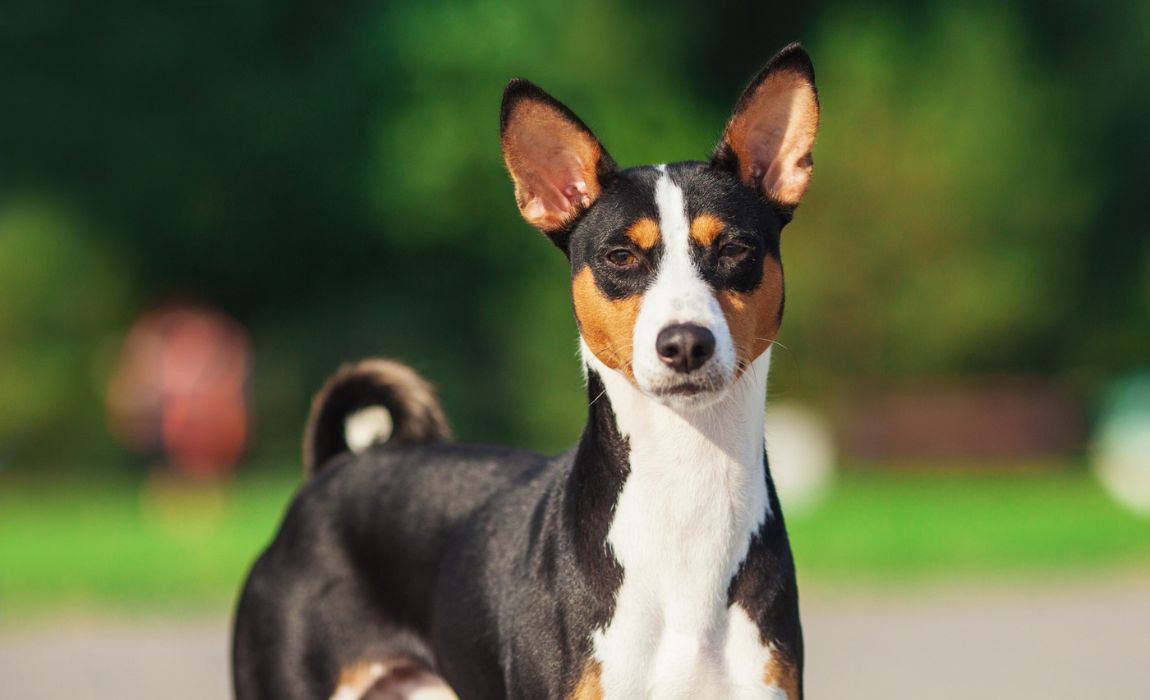




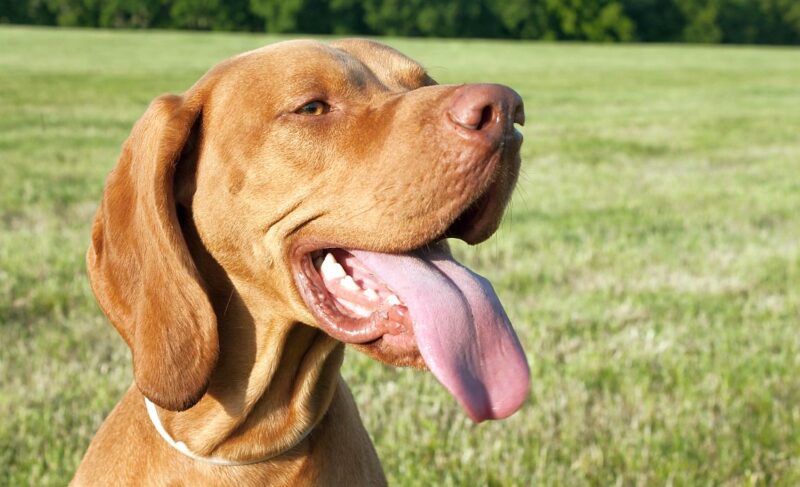
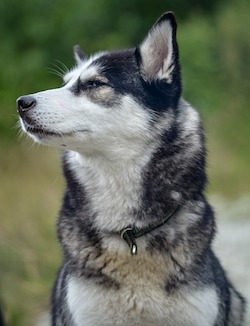
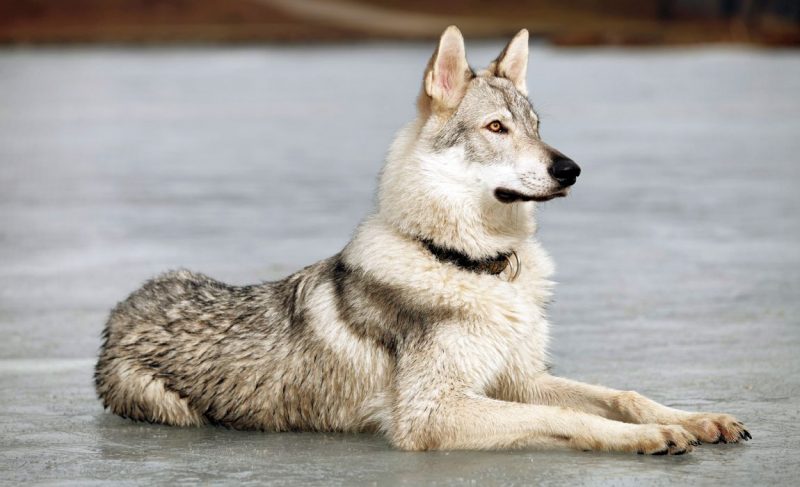
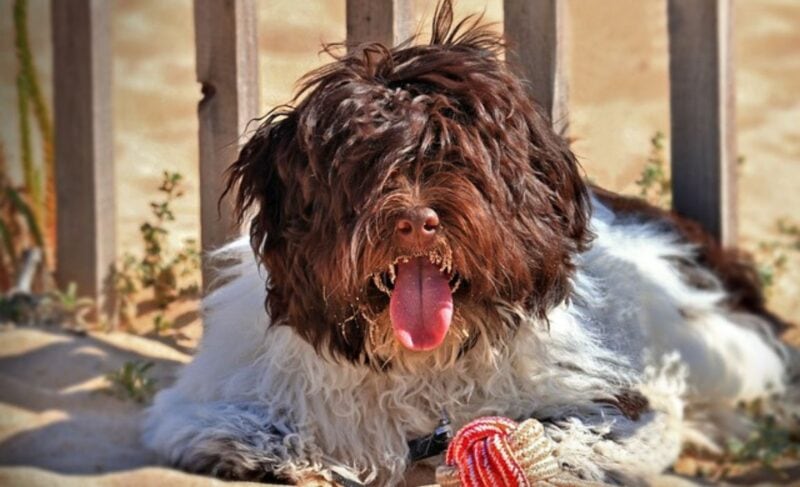


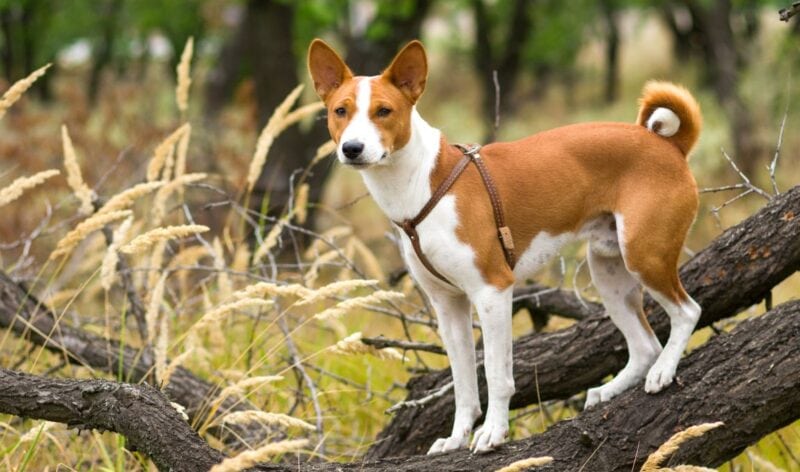

Leave a Comment